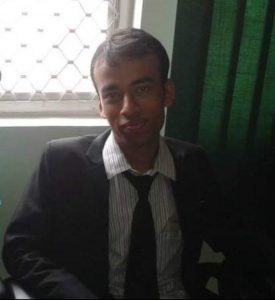1. Please introduce yourself, your areas of interest and share your achievements vis-àvis your acceptance to the LLM programme?
I am Prithvi Raaj Choudhury, LLM (Thesis) student at McGill University. I am also a recipient of the prestigious Erin J. Arsenault Fellowship. I completed my undergraduate law studies from National Law University and Judicial Academy Assam. My interests pertains to International Law (more specifically, Aviation and Space Law), and Intellectual Property Rights Law.
2. What has motivated you to pursue LLM in the chosen field of law? What were the major hurdles you had to overcome?
My interest to pursue an LLM in Air and Space Law materialized when I was in my 2nd year of law school. I had published an article on commercialization of space and this motivated me to explore further in the said field.
Like any law student from India, certain issues came to my mind, particularly the finances required for pursuing studies abroad, support from family, and preparing myself to apply to different programs in different law schools.
3. When is the ideal time to set your mind on pursuing LLM? How did you decide on
the college?
Though there is no ‘ideal time’, it would be wise to start the process early. Certain steps such as appearing for English examinations (e.g. TOEFL, IELTS, etc), applying for scholarships, and the applications itself take time, for which prospective students would have to plan ahead. Therefore, the whole process of planning and applying should ideally begin a year before a student completes undergraduate law studies. I decided on universities based on my interests and future expectations. In this case since I wanted to study air & space law, I focussed on applying at McGill, and three other universities in case McGill declined my application.
4. Tell us something about the timeline of the application and the commitment it requires?
Most universities’ applications (particularly in Western Europe and North America) begin September onwards. At this time a student should be ready with all the general requirements of an application, such as reference letters, statement of purpose, essays, etc. For certain requirements of the application process such as recommendation letters, its advisable to keep in touch with professors/supervisors and let them know that they would
need to submit recommendation letters on your behalf for the admission process. In the end it requires immense dedication and patience throughout the application process.
5. What should be kept in mind while writing SOPs, essays etc? What according to you made your application stand out?
A statement of purpose or SOP always has to be ‘personal’. In an LLM application it should reflect the applicant’s background, and furthermore it should showcase examples which the applicant can use to portray her/himself as a top candidate for the said LLM program. Furthermore, having prior experience (such as internships), publications, participation in moot court competitions, etc other than having good recommendations and grades helps to
make an application stand out from the rest.
3. Not quite related to the LLM, but how do you think Indian Law Schools can better equip their graduates to compete and excel on a global scale?
In my opinion, the curriculum of law schools in India are mostly traditional, from what I have seen it is also the case in most National Law Universities in the country, and generally such legal institutions do not give a law student enough flexibility in terms of course offerings and choices I believe that if law students from such traditional universities are given more opportunities in terms of choosing their subjects, offering exchange programs, encourage extra-curricular activities, I am sure that Indian law students would be able to compete with their foreign
counterparts.
4. Lastly, would you recommend an international LLM to an Indian law graduate? What are your future aspirations? Any messages to all other LLM aspirants?
My future goal is to pursue my PhD after completing my LLM to serve as an impetus to enter the academic field.
A decision to pursue an LLM abroad is definitely an enriching experience for an Indian law graduate. LLM classes (especially in North America and Europe) consist a diverse bunch of students having varied experience and from different legal systems from around the world, and this is a good way for an Indian law graduate to be apprised of the different ways in which law is taught, enforced, and practiced. My message to future LLM aspirants is to dream big and work hard, and to pursue an LLM in an area which they find to be engrossing.

